Assessment Workshop
IBGE brings together major experts in the country to evaluate the 2022 Census preliminary results
May 16, 2023 10h00 AM | Last Updated: May 17, 2023 08h16 PM
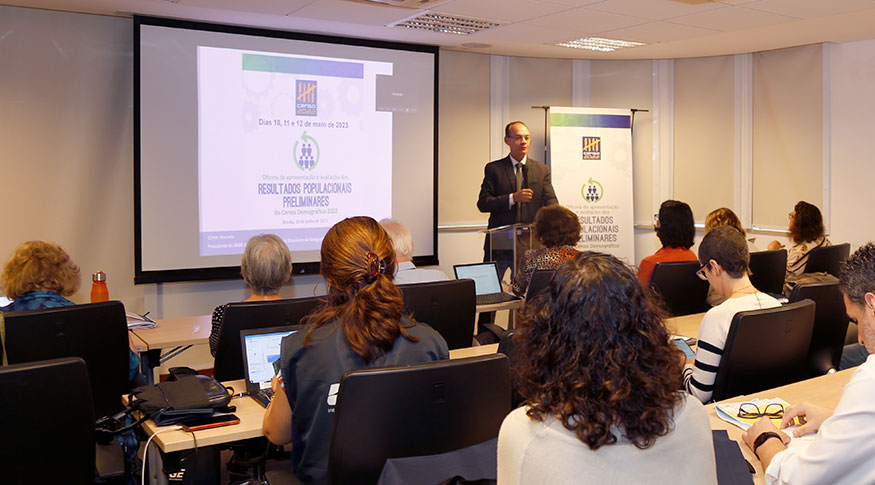
With two months left before the release of the 2022 Census results, scheduled for June 28, the iBGE brought together, at the institute’s headquarters, a group of nationally and internationally renowned demographers and statisticians. Having been invited by acting president Cimar Azeredo, they took part, from May 10 to 12, in the assessment workshop and evaluation of preliminary results on population from the 2002 Census. After thress days of discussions, the experts will write a report acknoledging the practical and methodological efforts amde by the IBGE since the beginning of the census data collection, on August 1st, 2022. The report will be endorsed by the United Nations Population Fund (UNFPA), which also attended the event. The final document is expected to be released within 30 days.
Besides IBGE directors and technicians, the event was attended by invited experts known for their academic production: Alicia Bercovich, Antonio José Ribeiro Dias, Bernadette Waldvogel, Bernardo Lanza Queiroz, Cassio Turra, Claudio Egler, Diana Sawyer, Eleonora Cruz Santos, Helena Cruz Castanheira, Irineu Rigotti, Junia Quiroga, Laura Wong, Maria Paula Ferreira, Marcos Roberto Gonzaga, Simone Wajnman, Suzana Cavenaghi and Zélia Bianchini.
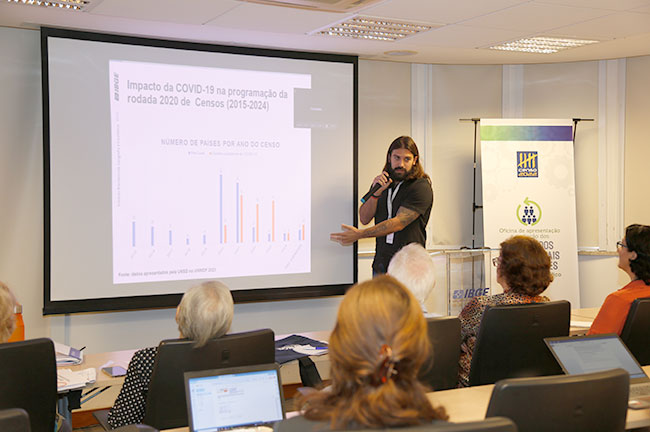
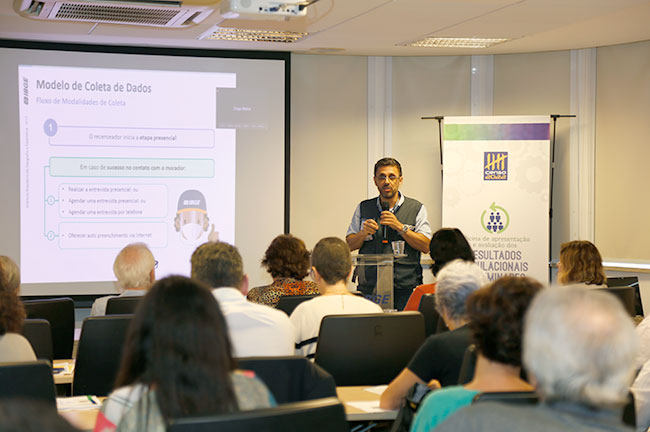
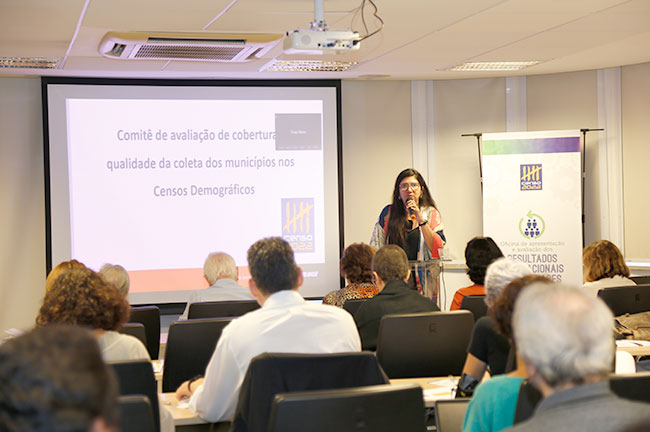
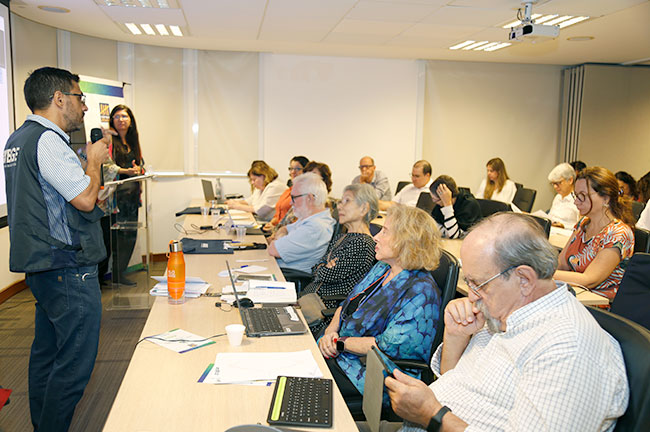
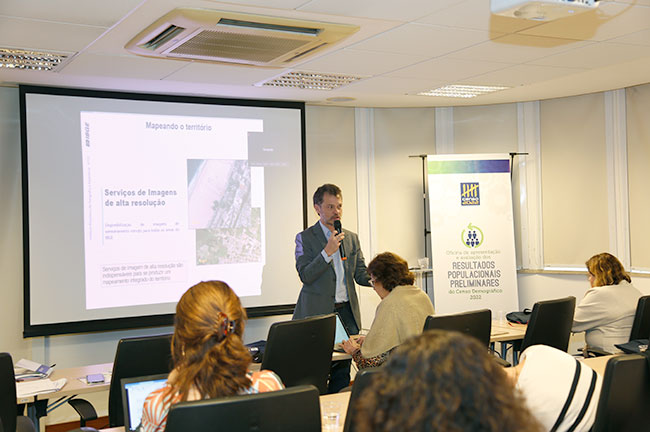
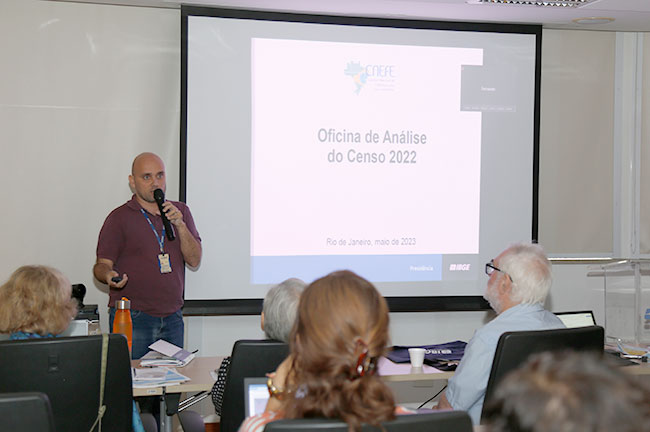
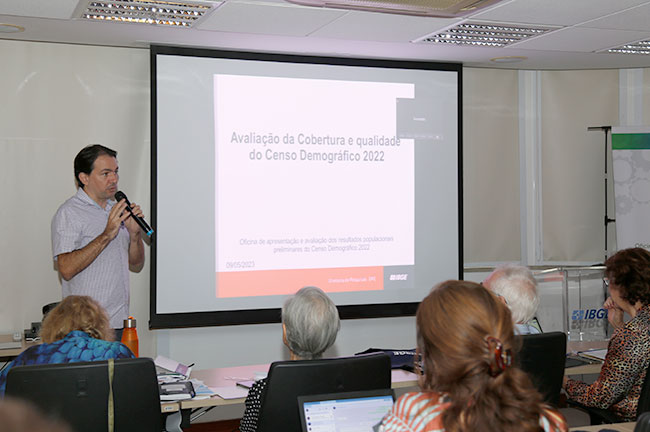
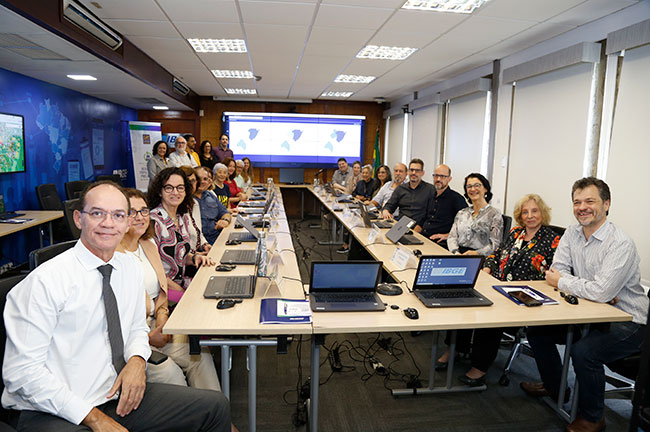
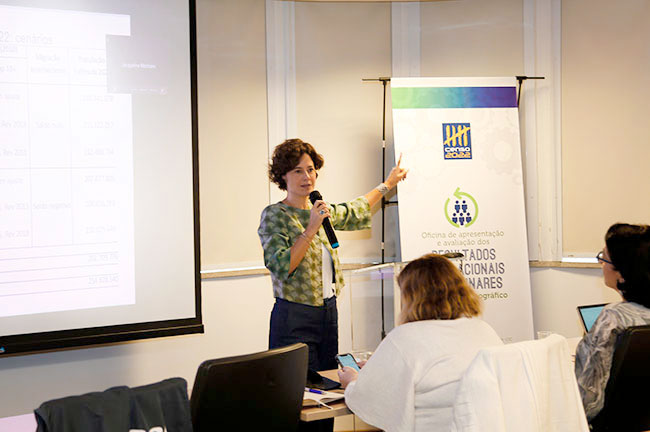
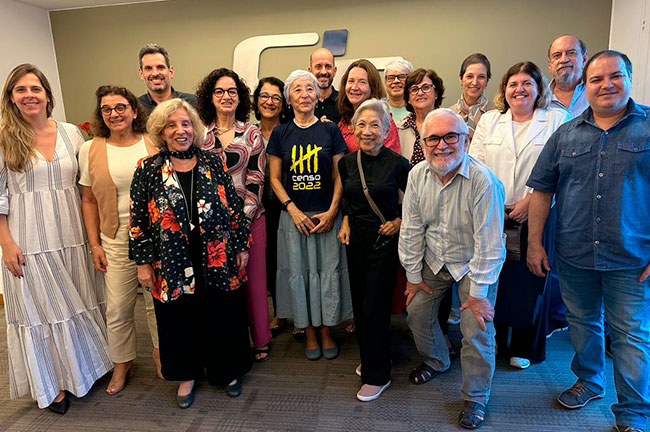
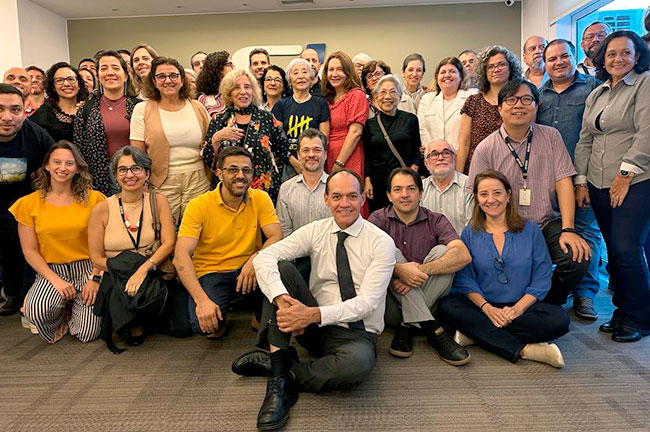
In the opening session, Cimar Azeredo explained in detail the challenges of the census operation, and mentioned thatright and wrong actions throughout the work make it suscesptible to adjustments. “The Census data are not carved in stone. It is always possible to revise and improve them,” he added, as he requested expert support to do this task.
He also mentioned as positive factors the use of technology as an aid in search of a better quality Census and of more rel time control of the operation, aiming at the reduction of the non-reply index, which is now 4.5% in the contry, on average. “Relevant national initiatives such as Favela on the Map and Condos on the Map, that called for residents’ participation in these areas to answer the Census, were successful.”
New technologies, data presentation, imputation: an intense exchange of experiences
The first day of the workshop was dedictaed to the presentation of technological advances in the 2022 Census, such as management and monitoring of data collection, in each enumeration area, for example, the Interactive Geographic Platform (PGI). All the geotechnology involved in residential data collection and the future maps it will generate were highlights in the workshop. Then, indicators of coverage and operation quality were presented, with a focus on the Post-Enumeration Survey (PPE).
The lectures were under the responsibility of Claudio Stenner, Director of Geosciences; Luciano Duarte, technical manager of the Census; Cristiane Moutinho, coordinator of Population and Social Indicators; Cayo Franco, Geography coordinator; Gabriel Mendes Borges, coordinator of the Post Enumeration Survey; and Eduardo Baptista, manager of th National Address List for Statistical Purposes (CNEFE).
On the following day, preliminary data on the 2022 Census were presented, as well as the calculation methodology used by the IBGE for imputation – a technique recommended by the international community that studies populations and censuses to fill out missing data. Among other countries, the United States, Canada, Mexico, the united Kingdom and Australia make use of imputation of persons in housing units where interviews were not conducted.
Among lecturers of the second day, were: Izabel Marri, manager of Analysis and Studies of the demographic Dynamics; Marcio Minamiguchi, manager of Population Projections and Estimates; and Marta Antunes., coordinator of the Census of Traditional Peoples and Communities. In all the lectures, the participants were free to ask questions at any time, and tha made the exchange of experiences more natural.
In the end of the meeting, the experts visited the situation room, which was created to monitor the Census activities at real time. With interactive large touch screens which provide updated information about the census data collection all over the national territory, the facility can have up to 30 persons per meeting. At the same location, aware of the preliminary population results and of the methods used in the IBGE calculations, the workshop participants formulated their initial analyses, critical commentarues and came up with suggestions that will be written on a technical report to be released in the middle of June.
See below some words by the experts at the end of the meeting:
“Intellectual honesty defines this workshop. Here we got to know about all the internal processes of the Census, in a panorama presented by exceleent professionals. Undoubtedly, these are coherent data.
Alicia Bercovich, mathematician and demographer (IBGE)
“I am dismayed at their transparency and grateful for the invitation. The delay in data collection was not so relevant: if we compare the current Census results to last edition’s, the time of release will be quite the same.
Antonio José Ribeiro Dias, stastistician and system engineer (IBGE)
“Whenever we go to different locations, the IBGE is an important reference in terms of sample surveys and Censuses. Being able to take part in this workshop and ask, see and experience whatever I wanted, without restrictions, is rewarding.”
Bernardo Lanza Queiroz, demographer (UFMG)
“This workshop followed a tradition of the IBGE, which is to discuss in a transparent, technically clear way, and with an open mind, the aspects related to data collection planning and operation and to the preliminary analysis of Census data. It was so important to clarify some aspects that were not so evident for experts.”
Cassio Turra, demographer (UFMG)
“We have nothing to fear. Now it is time to celebrate this accomplishment and show every process has a hisroty, ad this is a history about overcoming difficulties. I congratulate all IBGE servants on their work.”
Claudio Egler, geographer and economis (Institute of Geosciences/UFRJ)
“I’m not surprised to see such transparency in the Census operation, or the partnership with major name of the academic world in this event. It is a tradition at he IBGE to care for transparency and be in contact with the academic reality. Census figures certainly need to be assessed regarding their plausibility. But that will be done in due time.”
Diana Sawyer, ddemographer (professor emeritus/UFMG)
“You’ve done an amazing job, during a very stormy period. We should highlight the technological evolution in the 2022 Census, since the operation counted on so many monitoring and control tools that allow the correction of problems at real time. We have confidence on the IBGE technical team and trust the figures produced entirely.”
Helena Cruz Castanheira, representative for the Latin American and Caribbean Demographic Centre (Celade/CEPAL)
“These have been three intense days. We have acquired a huge amount of information and that makes clear how complex a census operation is. That was a unique opportunity for use, researchers and scientists, a period for exchange and mutual learning.”
Irineu Rigotti, geographer and demographer (UFMG)
“Their transparency amazed us all. A unprecedented technology showing as much as possible. I am at peace with the entire census operation. And the resulting figures seem to be trustworthy.”
Laura Wong, demographer (UFMG)
“The main virtue of this Census is transparency. That will help explain any unexpected result. So, it is possible to say “we have had problems in this Census, but we can explain and justify them.”
Marcos Roberto Gonzaga, statistician and demographer (UFRN)
“Due to splendid presentations and the sharing of information of the technical team with us, we were were engaged in the process. I will leave this event completely sure that the Census was conducted with idealism and effort, the best way possible.”
Simone Wajnman, demographer (UFMG)
“Ah it has been said, we don’t have a Census, we have 27 censuses, one for each state. It is important to highlight the difficulty in having a Census all over such a heterogeneous country. The IBGE has done everything possible, the best they could. And that is what remains, a reflection of georeferencing, transparency.”
Suzana Cavenaghi, demographer (Ence)
“I am proud and satisfied to see methodological and technological advances of the Census, besides the efforts made by the professionals in each accomplishment. That is a major challenge, and now we have to focus on results in this Census of transparency.”
Zélia Bianchini, mathematician and statistician (IBGE)




















